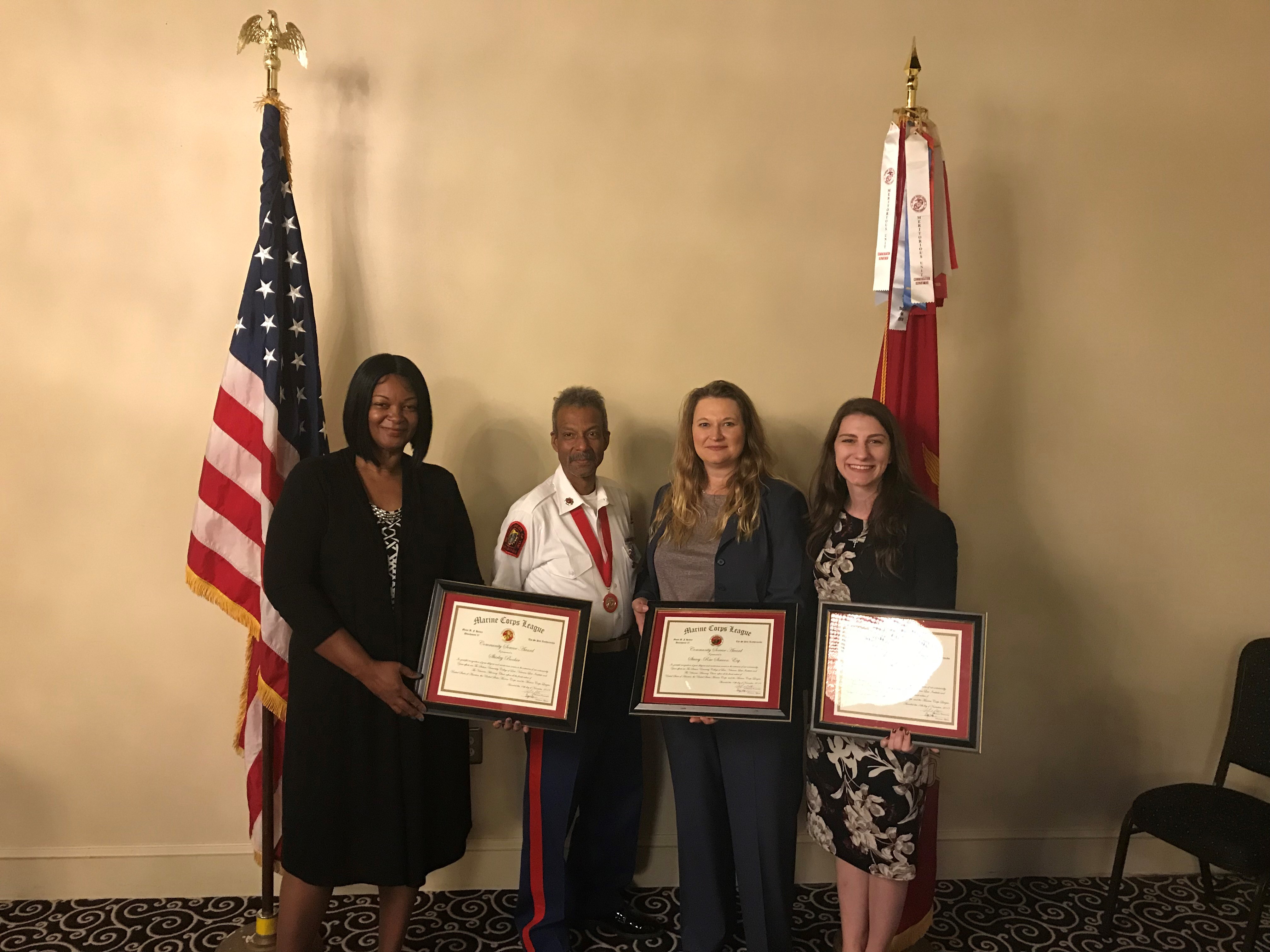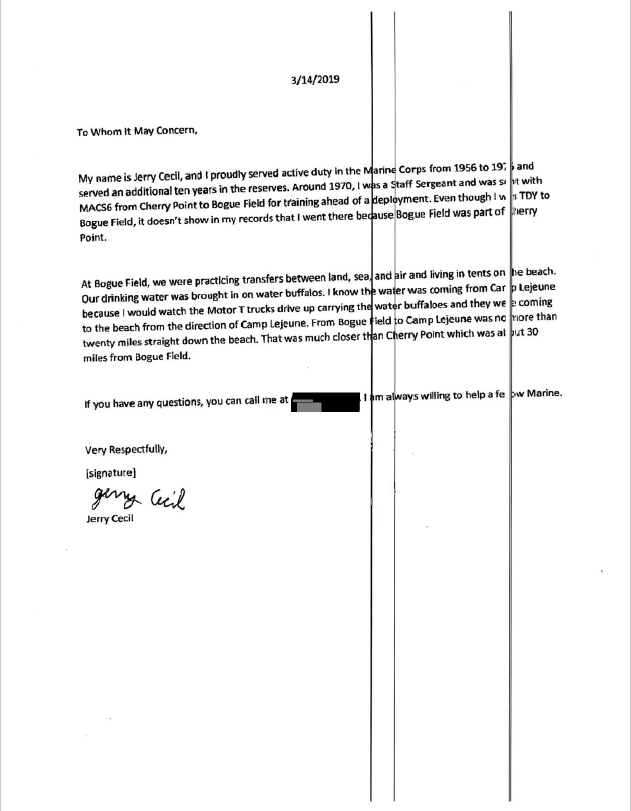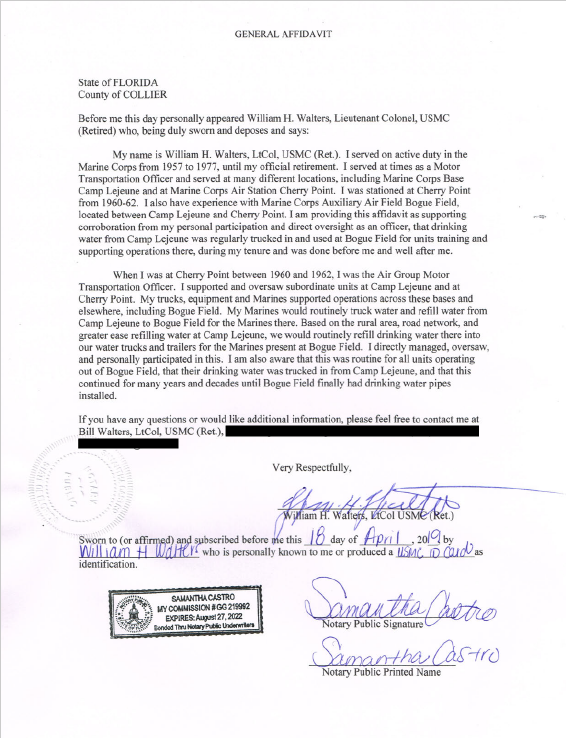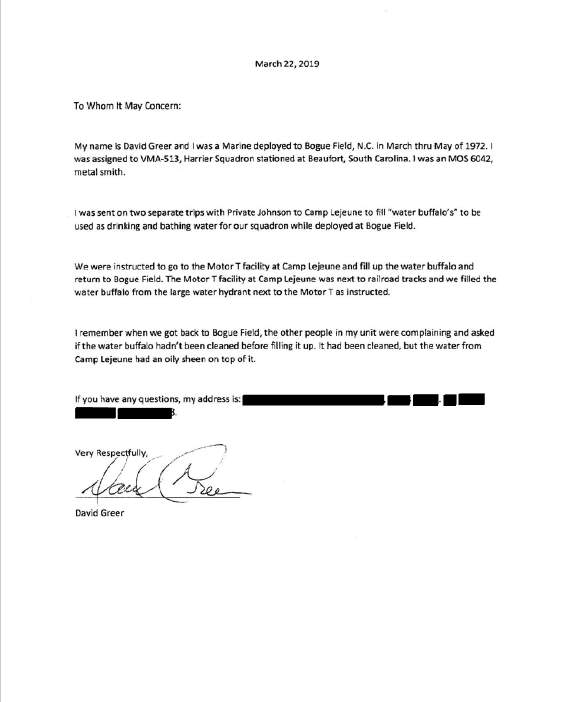Camp Lejeune Water at Bogue Field
We have been successful in obtaining grants of service-connection for conditions caused by the contaminated water at Camp Lejeune, even for veterans who never spent a single day at Camp Lejeune.
Due to the lack of potable water at the Marine Corps Auxiliary Landing Field at Bogue, North Carolina (Bogue Field), large water tanks known as "water buffaloes" or "water bulls" were driven in. Though Bogue Field falls under the jurisdiction of Marine Corps Air Station Cherry Point (Cherry Point), it was not practical to bring water from Cherry Point. Instead, the water was brought in from Camp Lejeune.
We obtained statements from the Marines who filled the tanks with water at Camp Lejeune and drove the water tanks to and from Bogue Field. These statements helped us prove that our clients who were stationed at Cherry Point but spent time at Bogue Field drank the same contaminated water the Marines at Camp Lejeune drank.
We want to share the materials with you, with hope that other veterans may benefit from them. Please see below for excerpts from our briefs and for buddy statements you may use to support your claim.

Members of the Veterans Advocacy Clinic received community service awards for their work on these cases at the Marine Corps Ball on November 16, 2019. Then-Assistant Director Shirley Booker, far left, Veterans Law Institute Director Stacey-Rae Simcox, second from right, and Stetson Law alumna Mary Samarkos, far right.
We wish to extend a special thanks to Joshua Magidson, Esq., a member of the Stetson University Board of Trustees, and the Marine Corps League of Florida for their support and assistance.
Buddy Statements
Below are buddy statements we have obtained to support our argument that the water from Camp Lejeune was brought in to Bogue Field. If you would like us to email you a copy of these, reach out to us at [email protected].



Excerpts from Briefs
Below are excerpts from briefs we have submitted. You are welcome to use these in your submissions to VA if applicable to your case.
Congressional intent was to provide relief to those veterans who have suffered from the contaminated water at Camp Lejeune.
In 2012, Congress passed the America’s Veterans and Caring for Camp Lejeune Families Act, which gave medical care to veterans and their families who served at Camp Lejeune for at least thirty days. The VA later passed 38 C.F.R. 3.309(f) to extend service-connection more broadly to any veteran exposed to “contaminants in the water supply at Camp Lejeune during military service,” which is a less stringent geographic requirement than the presumptions passed by Congress in 2012.
In passing the Camp Lejeune Act, Congress recognized “veterans deserve the presumptions of the service-connection . . . to ensure that they receive the benefits to which they are due.” Service at Camp Lejeune is intended to be “broadly defined” by the VA. An example of this broad definition is shown in the VA’s explanation of the Camp Lejeune presumption extending to MCAS New River. New River is an independent base not under the jurisdiction of Camp Lejeune, but shared a water source with Camp Lejeune. As a result, presumptions are automatically extended to New River as well, showing the presumption is based on the danger of exposure to the contaminated water from Camp Lejeune, not inherently Camp Lejeune alone. So, when the drinking water from Camp Lejeune was moved outside the physical boundaries of the base, the danger it posed to people moved with it.
Bogue Field did not have its own source of potable drinking water. There is an overwhelming amount of evidence from statements from other veterans that water to Bogue Field came from Camp Lejeune over a long period of time due to the road conditions and proximity to Camp Lejeune from Bogue Field. This evidence is certainly enough to meet the burden of “as likely as not” and the benefit of the doubt should be given to the veteran.
Bogue Field had limited personnel facilities, as it was designated as an Auxiliary Landing Field and not a location of permanent residence with barracks. Corroborated by personal statements, the drinking water at Bogue Field was brought in from Camp Lejeune. The personal statements of these veterans validate that the water at Bogue Field was not potable. The veterans were told to not drink the water at Bogue Field by the officers. This water was the only water that was consumed while at Bogue Field and was used not only for hydration, but to brew coffee and prepare food. The veterans' statements corroborate that the water was transported from Camp Lejeune to Bogue Field. With multiple veteran statements supporting that there was no potable water at Bogue Field and that potable water was water delivered in trucks from Camp Lejeune, a conclusion can be drawn that it is more likely than not that the drinking water at Bogue Field came from Camp Lejeune.